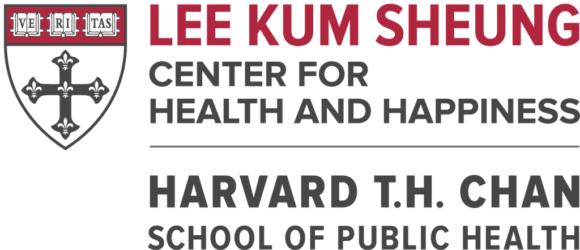The Lee Kum Sheung Center for Health and Happiness is pleased to announce the two Dissertation Research Award winners for the 2022–2023 academic year. The Dissertation Research Award Program was established to assist full-time doctoral students of public health who are conducting dissertation research in the field of positive health science or another closely related field. Through this program, the Center seeks to involve students in its work to (1) build a rigorous science of positive health and well-being and (2) translate science into practice and policy.
Hayami Koga, PhD candidate, Department of Social and Behavioral Sciences, Harvard T.H. Chan School of Public Health
Psychological Well-Being and its Association to Motor Function, Parkinsonism, and Cardiometabolic Biomarkers
Hayami Koga’s dissertation investigated whether positive psychological well-being plays a role in the maintenance of motor functioning and development of Parkinsonism in aging populations, as well as the neurobiological mechanisms underlying the link between positive psychological well-being and health outcomes. Her research also investigated the racial and ethnic differences in these associations. She hypothesized that positive psychological well-being will be associated with reduced risk of motor decline and healthier trajectories of Parkinsonism, and that these associations will be evident across racial groups.
Beth Stelson, PhD candidate, Department of Social and Behavioral Sciences, Harvard T.H. Chan School of Public Health
The Effect of Supportive Work Environments & Vicarious Trauma on the Physical Health of Hospital Workers: A Multilevel Mediation and Moderation Analysis
Beth Stelson’s dissertation investigated how vicarious trauma (defined as the emotional duress that results when an individual hears about the trauma experiences of another) affects the physical health of nurses and patient care workers enrolled in the Boston Hospital Workers Health Study, and how components of a supportive work environment may beneficially diminish these effects. As a first step in this research, she examined the association between vicarious trauma exposure and worker health insurance claims; and as a second step, she assessed the degree to which a supportive work environment modifies the relationship between vicarious trauma exposure and physical health outcomes. She hypothesized that (1) greater vicarious trauma exposure will be associated with greater odds of experiencing an adverse physical health outcome, and (2) the effect of vicarious trauma exposure on health outcomes will vary by level of supportive work environment, as measured by people-oriented culture, coworker support, and supervisor support.



You must be logged in to post a comment.